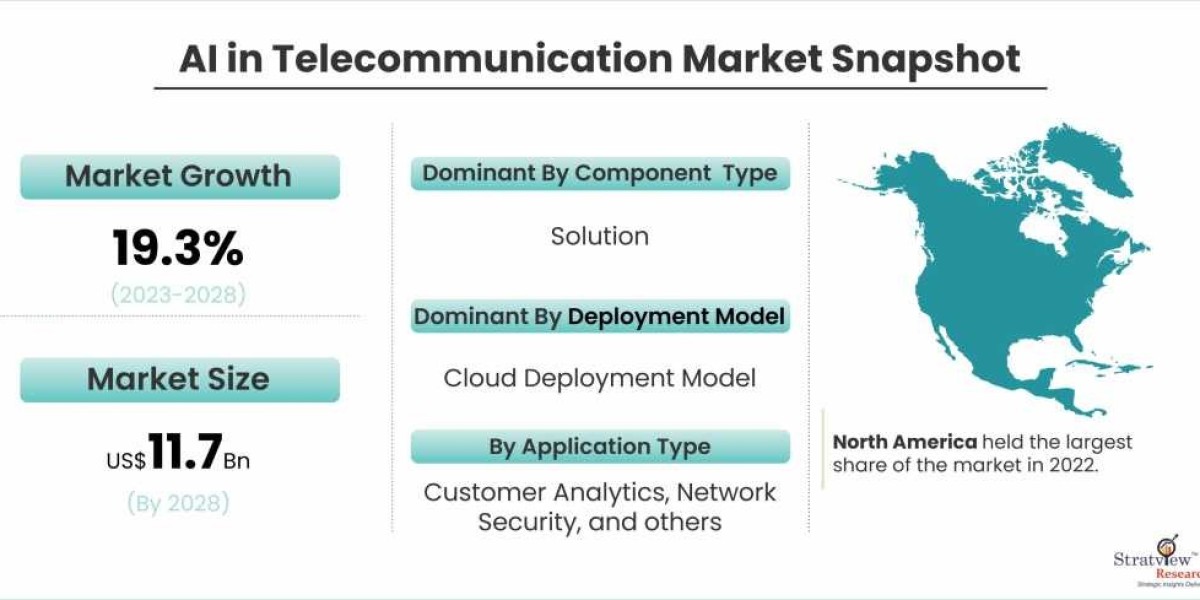Introduction
AI in Telecommunication refers to the integration of artificial intelligence technology in the telecommunication industry to improve efficiency, performance, and customer experience. The use of AI in telecommunication can be applied in a wide range of areas, including network optimization, predictive maintenance, customer service, and marketing. AI can be used to analyze large volumes of data generated by telecommunication networks to optimize performance and improve reliability.
The global artificial intelligence (AI) in telecommunication market is estimated to grow from USD 1.79 billion in 2022 and is likely to grow at a CAGR of 19.3% during 2023-2028 to reach USD 11.7 billion by 2028.
The integration of Artificial Intelligence (AI) in the telecommunication industry has rapidly transformed the sector, bringing about new efficiencies, cost reductions, and enhanced customer experiences. AI technologies, such as machine learning (ML), natural language processing (NLP), and robotic process automation (RPA), are being increasingly utilized by telecom companies to optimize network performance, predict and manage equipment failures, and automate customer service operations.
One of the key areas where AI is making a significant impact is in network optimization. AI-driven algorithms can analyze vast amounts of data from telecom networks in real-time, enabling predictive maintenance, anomaly detection, and automatic adjustments to network configurations. This not only improves the quality of service (QoS) but also reduces downtime and operational costs. For instance, AI can predict network congestion and automatically reroute traffic, ensuring uninterrupted service for users.
Customer service is another domain where AI is revolutionizing the telecom industry. Chatbots and virtual assistants powered by AI and NLP are enabling telecom companies to provide 24/7 support to customers. These systems can handle a wide range of inquiries, from billing questions to troubleshooting technical issues, reducing the workload on human agents. AI systems also improve customer retention by analyzing user behavior and predicting when a customer might be likely to churn, allowing for timely interventions.
Moreover, AI is helping telecom companies deploy and manage 5G networks. As 5G networks become more complex with increased data traffic and connected devices, AI is essential for ensuring seamless operations. AI algorithms can manage spectrum allocation, enhance network slicing, and automate the provisioning of services in a highly dynamic 5G environment.
Despite the benefits, the integration of AI into telecommunications also comes with challenges. Data privacy concerns and the high cost of AI implementation are among the top issues telecom companies face. However, with the promise of increased efficiency, enhanced customer satisfaction, and more reliable network operations, the AI in telecommunication market is poised for significant growth.
In conclusion, AI is becoming an indispensable tool in the telecom industry, driving innovations in network management, customer service, and the rollout of advanced technologies like 5G. As telecom companies continue to harness AI’s potential, the market is expected to grow exponentially, reshaping the future of telecommunications.
To know in detail about the market dynamics, Register Here: https://www.stratviewresearch.com/Request-Sample/2743/artificial-intelligence-ai-in-telecommunication-market.html#form



